Collection highlights
Our archive, rare book and manuscript resources cover all subject areas with major highlights in Twentieth-Century South West writing, Literature and Visual Culture, Victorian Culture, Middle East Studies, and Religious and Parish book collections. View our collection guides organised by subject.
Our materials are used in assessed essays, workshops, seminars, student dissertations and exhibitions.
Chris Brooks Collection

Professor Chris Brooks was one of Britain's leading cultural historians of the Victorian period. His library was donated to the University Library in 2002.
The collection supports a wide range within the field of Victorian culture and adult and juvenile fiction of the Victorian and Edwardian period forms a major emphasis in the collection.
The Periodical collection contains a complete set of Punch, indexed by Brooks and as such provides an insight into his research topics. Other titles include All the Year Round,The Boy's Own Paper, Cornhill Magazine, Fireside, and Good Words.
The library catalogue contains further details of the 10,000 books and journals in the collection.
Theo Brown Archive

Theo [Theodora] Brown (1914-1993) was an important figure in twentieth-century folklore, who documented the arcane tales and traditions of her native Devon through first-hand accounts. In 1952 she was appointed recorder of folklore for the Devonshire Association, and continued researching folklore for the rest of her life. She was elected to the Council of the Folklore Society in 1957. In 1983, she was awarded the Coote Lake Medal by the Folklore Society for outstanding research and scholarship.
The collection contains Brown’s research notes, manuscripts and correspondence letters addressed to Brown about her research.
Further information on this collection can be found on our Theo Brown folklore collections resources information sheet and on the Library and Archive catalogues.
Charles Causley Archive
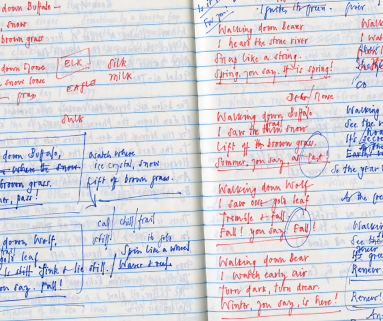
Charles Causley, poet, was born in Launceston, Cornwall on 24th August 1917
His first and best known book of poetry, 'Farewell Aggie Weston' is a reference to Agnes Weston, the founder of sailors' hostels. The deep rootedness of his work in the Cornish landscape led to him being dubbed 'The Poet Laureate of Cornwall'.
The collection includes all Causley's literary manuscripts, including his notebooks and letters, photographs and diaries are also included. The correspondence includes letters to Causley from writers such as Siegfried Sassoon, Ted Hughes, Jack Clemo, AL Rowse and C Day-Lewis.
Further information on the collection can be found on the archives catalogue.
Agatha Christie Business Papers
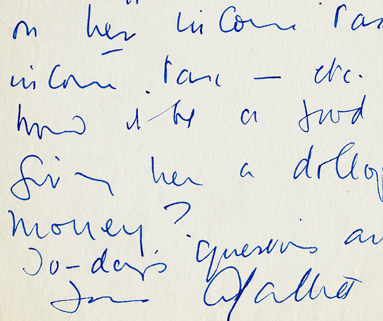
This collection is from the offices of Hughes Massie and Co. Ltd. relating to Agatha Christie's literary estate. Throughout her career her agent was Edmund Cork, and these files were created by him to reflect his dealings with publishers, film-makers and other professional persons with an interest in the Christie estate, including Agatha Christie herself, and her husband, Sir Max Mallowan.
Each file of correspondence relates to a particular year, and may include correspondence between Agatha Christie and Edmund Cork, correspondence between Cork and American literary agent, Harold Ober, and other interested parties. There are between 5,000-6,000 letters in the collection. Further information is available on the archive catalogue.
Common Ground Archive

Common Ground is an arts and environmental charity, founded in 1982 to celebrate the relationship between people and everyday places, and to empower people to care for their local environment. Common Ground’s projects have raised awareness of a variety of environmental issues by commissioning artistic works; organising exhibitions, events and conferences; launching new calendar customs; and publishing books, pamphlets, newsletters, leaflets and postcards. Many of the projects - in particular, 'Parish Maps', the ‘Campaign for Local Distinctiveness’ and 'Apple Day' - have proven to be highly sustainable, continuing long after Common Ground's active involvement in them ceased.
The Common Ground archive comprises a wide range of material compiled by the charity in the course of its activities between 1982 and 2013, including project planning papers, correspondence, reports, financial papers, research material, press clippings, photographs, promotional material, and publications. Further information on this archive can be found on the archives catalogue.
Du Maurier Collection
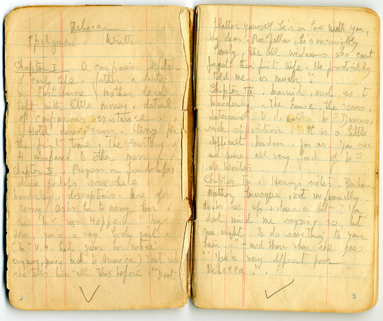
The du Maurier family have a fascinating history, with many of its members leading distinguished and well-documented careers. The family members represented in this collection include Louise Wallace (aunt of George du Maurier), George du Maurier (illustrator and novelist), Gerald du Maurier (actor and manager) and Daphne du Maurier (writer). Also included are papers relating to Sylvia du Maurier (sister to Gerald) and Angela du Maurier (sister to Daphne).
The collection includes several early manuscripts by Daphne du Maurier, including notebooks relating to 'Rebecca' and 'My Cousin Rachel'. Most of her later works are represented in either original typescript or proof.
Further information on the collection can be found on the archives catalogue.
University of Exeter Archive
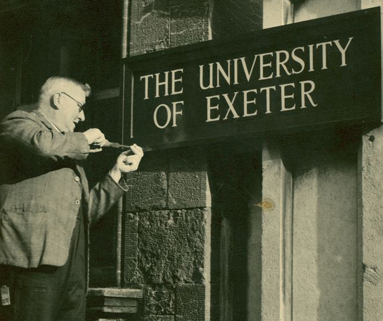
The University of Exeter archive contains a wide variety of records relating to the University of Exeter and its predecessor institutions, including the Royal Albert Memorial College and the University College of the South West.
The collections contain a wide variety of material; from the photographic archive containing photographs from the late 1800s to the present day, student publications from the early 1900s onwards, registers and building records.
Further information on the collections can be found on the archives catalogue or the library catalogue for print material such as student magazines.
Gale Morant Archive
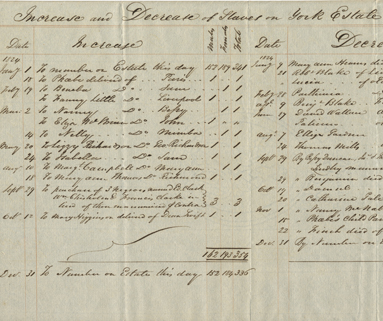
The Gale and Morant Family Papers contains approximately 500 documents relating to the management of family-owned sugar plantations in Jamaica at the height of the Transatlantic Slave Trade. Both sides of the family acquired sugar plantations that used the forced labour of enslaved people. These papers include lists of the people who were enslaved on the plantations, noting details such as their name, age, country of origin, occupation, and the enslaver's assessment of their 'condition' and 'value'.
Further information on the collection can be found on the archives catalogue.
William Golding Archive
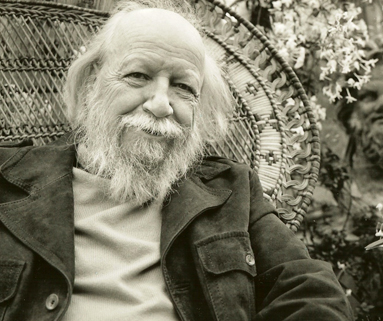
Sir William Golding (1911-1993), novelist, was born in Newquay, Cornwall. He was educated at Marlborough Grammar School and Brasenose College, Oxford. He subsequently taught at Bishop Wordsworth's school. In 1983 he was awarded the Nobel prize for literature.
The collection consists of notebooks, manuscript and typescript drafts of Golding's novels up to 1989 including the original manuscript and typescript of Lord of the Flies.
Further information on the collection can be found on the archives catalogue.
Hypatia Collection

The Hypatia collection contains approximately 10,000 books and journals by or about women. Part of its richness stems from the inclusive collecting habits of its creator who acquired many ephemeral titles and books on subjects and by writers traditionally excluded from the academic canon in her aim 'to make available published documentation about women in every aspect of their lives'.
The collection is strongest on biography, social life, occupations and history, as well as on literature (especially fiction) and the arts.
Further information on the collection can be found on the library catalogue.
John Jarmain Archive

William John Fletcher Jarmain (1911-1944), novelist and poet, enlisted in 1939 and served throughout the Second World War as a gunnery officer with the 51st Highland Division, during their campaigns in North Africa and Sicily. Much of Jarmain’s best poetry was written at this time with poems such as ‘El Alamein’ and ‘Sand’. Jarmain was killed in Normandy on the 26th of June 1944.
The collection contains 120 manuscript letters written by Jarmain to his wife Beryl during the war. Some of the letters include drafts of the poems which were later published as a collection, providing an insight into his poetry and the context which inspired it.
Further information on this collection can be found on our John Jarmain resources information sheet and on the Library and Archive catalogues
Sir Norman Lockyer Collection
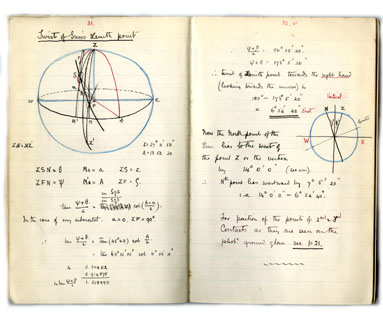
Sir Joseph Norman Lockyer (1836-1920), astronomer, was one of the pioneers of astronomical spectroscopy and became one of the most influential astronomers of his time. His main interest was sun spectroscopy, and he proceeded to push back the frontiers of spectroscopy and science, discovering the theoretical existence of helium. In 1869 Lockyer founded the journal 'Nature'.
The collection contains materials regarding Lockyer himself such as memorials, letters from friends and notes made by Lockyer but also papers relating to the administration of the Norman Lockyer Observatory.
Further information on this collection can be found on our Norman Lockyer resources information sheet and on the Library and Archive catalogues.
Middle East Collections

The University of Exeter’s archive provides unique collections, totalling over 100,000 items on Arab Gulf states: Saudi Arabia, Kuwait, Oman, Qatar, Bahrain, Yemen, United Arab Emirates as well as the wider Arab world including Egypt, Lebanon, Syria, Jordan. The collection contains documentary reference material such as statistical data, country reports, official publications, political opposition newsletters and Pan-Arab literature and important collections of private papers and diaries with an emphasis in the archives on the Mid East Gulf.
Middle East collections held include those of Charles Dalrymple-Belgrave, Sir William Luce and Glencairn Balfour-Paul.
Further information on these collections can be found on the archive catalogue by searching for the name or area you are interested in.
Powys Family Collection
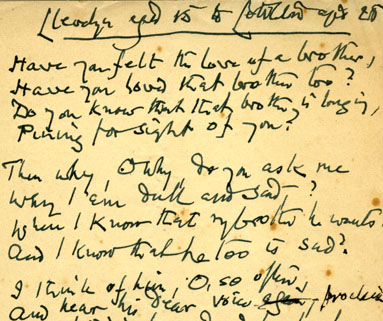
The Powys family is one of the most remarkable in the history of English literature and they attracted a wide circle of friends and admirers. The eleven children born to Charles Francis Powys and his wife Mary Cowper Johnson were all formidable individualists yet united by their passionate love of nature and strong sense of family. Among the brothers, one became a schoolmaster, another an architect, and another a farmer in Kenya. Of the sisters, one was a poet, another a painter and one, in New York, the leading authority on lace. But it is three of the brothers, John Cowper, Theodore Francis and Llewellyn, who as writers were the best known members of the family; their books and papers form the bulk of the collections held here.
Further information on this collection can be found on The Powys Family resources information sheet and on the Archive catalogue.
A.L Rowse Archive
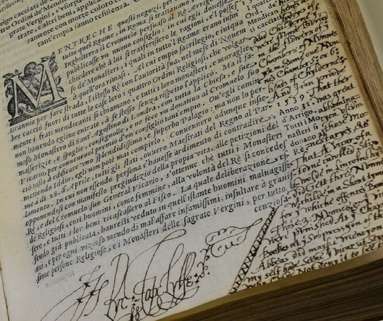
Alfred Leslie Rowse, historian, biographer and critic, was born near St. Austell, Cornwall in 1903. He attended St. Austell grammar school and Christ Church, Oxford, gaining a first class honours degree in 1925.
Included in the collections are manuscripts and typescripts of published and unpublished works. including journals and notebooks from throughout his life and his collection of rare books. Rowse was a dedicated correspondent and exchanged letters with an extensive range of people including Daphne du Maurier and T.S. Eliot.
He was awarded an honorary doctorate by the University of Exeter in 1960 and was made a Companion of Honour in 1996, a year before his death in 1997. Further information on the collection can be found on the archives catalogue.
Syon Abbey Collection
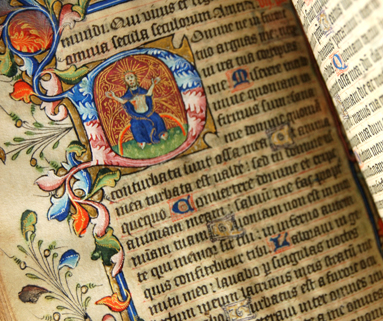
Syon Abbey was a monastic house of the Order of our Most Holy Saviour, also known as the Bridgettine Order. The enclosed community - comprising both monks and nuns, and governed by an abbess - was renowned for its dedication to reading, meditation and contemplation. The Abbey was founded in 1415 in Twickenham, but the community spent many centuries migrating through Europe, before returning to England in 1861. The community spent its final century living in Devon, where Syon Abbey closed in 2011.
The Syon Abbey archive and rare book collections include medieval and modern manuscripts; printed books dating back to the 16th century; and the archive, which consists of material concerning the workings, business and people of Syon Abbey, dating from 1467 to 2018.
Further information on this collection can be found on our Syon Abbey Resources information sheet, and on the Library and Archive catalogues.
Henry Williamson Archive
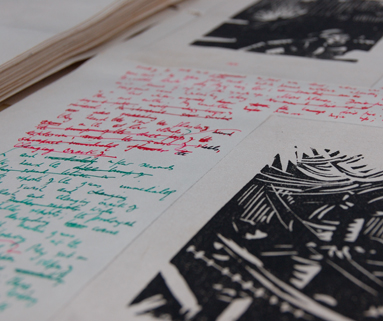
Henry Williamson (1895-1977), writer, was born in south London. In 1927 he wrote his most well known book, 'Tarka the Otter' and in 1930, 'A Patriot's Progress' based on his trench experiences.
His postwar work is a cycle of fifteen novels entitled, 'A Chronicle of Ancient Sunlight', which was completed in 1960.
The collections relating to Henry Williamson include all literary manuscripts and typescripts, the papers of the Henry Williamson Society and correspondence from and to Williamson including illustrator Charles Tunnicliffe, Brocard Sewell and Ronald Duncan.
Further information on the collection can be found on the archives catalogue.
